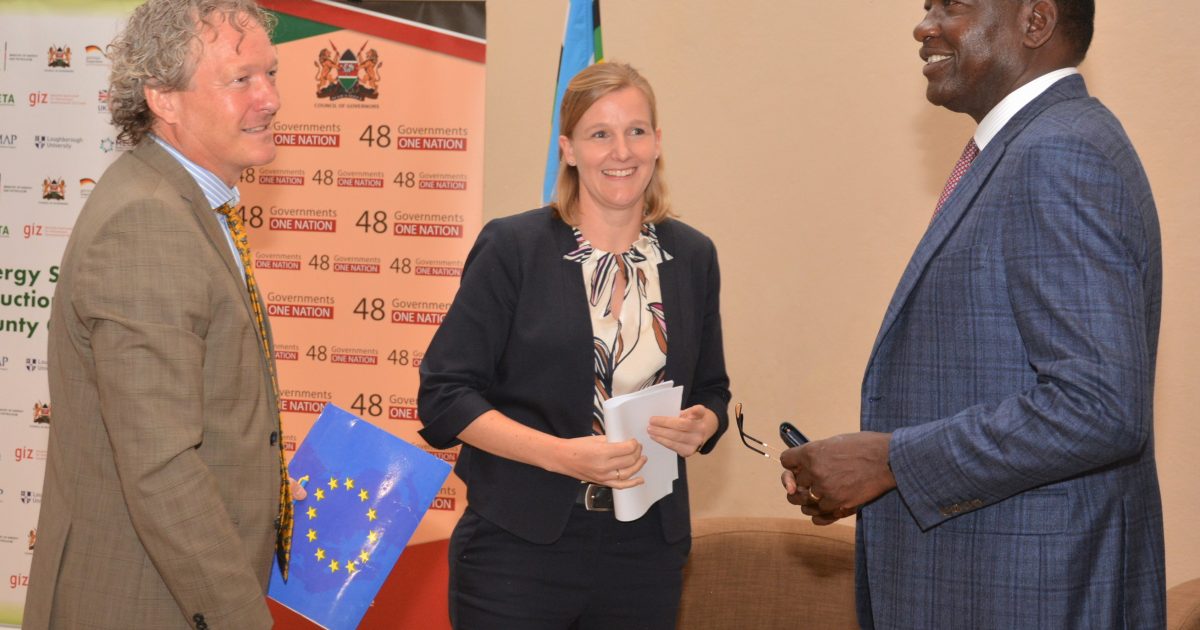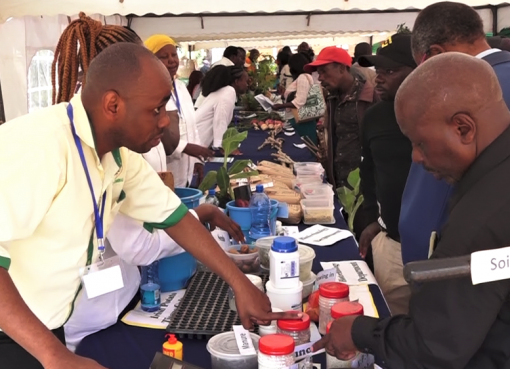The European Union [EU] and the German Development Corporation [GDC], has committed to strengthen their support towards Kenya’s ambition for a 100 percent green electricity system by 2030.
The two international partners lauded Kenya’s efforts in her transition drive to clean energy, noting that already more than 90 percent of the country’s electricity mix, is green.
They said the green mix consisting of geothermal power, solar and wind, helps Kenya to absorb and withstand shocks occasioned by global energy crisis, setting the country towards building a sustainable and resilient energy sector.
Speaking during an energy stakeholders’ forum in Naivasha, EU Head of Energy in Kenya, Martin Andersen, said since 2014, EU has spent over Sh19 billion in grants to the renewable energy sector, especially in generation, transmission and distribution systems.
Mr. Andersen announced that the EU is planning to spend another Sh2.7B in grants for a new energy project “Green Resilient Electricity System” that is being designed together with Kenyan energy actors.
He said the project will support new green electricity generation and strengthen the transmission system and thereby support Kenya’s ambition for a 100 percent green electricity system by 2030.
According to the Ministry of Energy, Kenya seeks to transition to 100 percent renewable energy by year 2030, universal access to electricity by 2030 and universal access to clean cooking by 2028.
Official data shows the country’s installed electricity capacity has risen from 1,600MW to 3,300 MW in the last decade, with over 90 percent sourced from clean energy sources.
Additional, Mr. Andersen said the EU has also increased its grant funding to the tune of Sh542 million for the ongoing Sustainable Energy Technical Assistance [SETA] that will benefit 20 county governments meet their energy generation provisions.
He said SETA is designed to support the venture on wind, solar, and battery energy storage, providing clean power to the national grid to enhance an efficient, climate, and environment-friendly energy services for Kenyans.
“It is essential that we work together, across government, development partners, private sector, and civil society, to build strong and resilient energy systems that can support Kenya’s development for generations to come”, said Andersen.
Andersen added that in partnership with Ministry of Energy and other European partners, have embarked on developing a green hydrogen roadmap and strategy for Kenya.
He said the new frontier can create new business opportunities for Kenya and be a major job creator such as venturing into national production of fertilizer based on green hydrogen.
The German Development Corporation Country Director, Bodo Immink, said Germany has scaled up its investments in the country in areas of geothermal power generation, wind, solar, electric mobility, green hydrogen and clean cooking technologies.
Immink said they have also helped in creation of an enabling environment by developing policies, regulations and Integrated Energy Planning [IEP], to help scale-up investment in clean energy.
Immink said these efforts will help to accelerate Kenya’s progress towards net – zero emission and enhance resilience and adaptation to the effects of climate change.
By Erastus Gichohi




